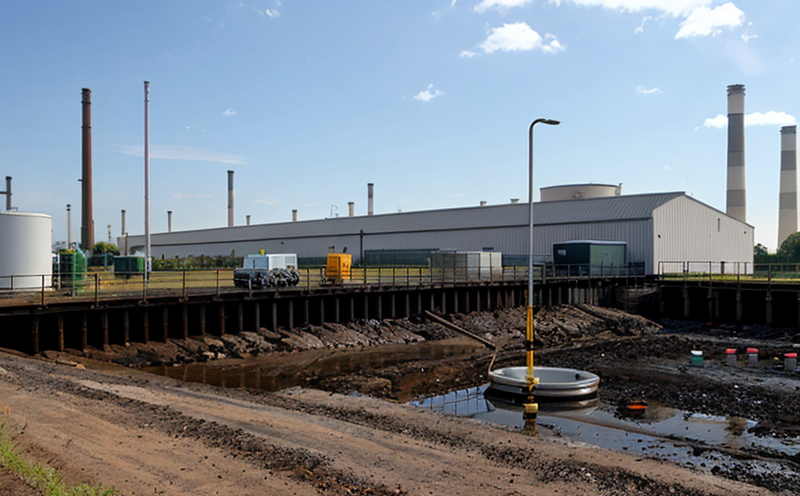EN 15267 Certification of Air Quality Monitoring Systems for Industry Test
The EN 15267 certification is a critical requirement for air quality monitoring systems used in industrial environments. This standard ensures that the instruments and systems accurately measure air pollutants, thereby facilitating compliance with environmental regulations and maintaining occupational health standards.
Industrial sites often face complex challenges related to air pollution due to various sources such as combustion processes, chemical manufacturing, and material handling. The EN 15267 certification process involves rigorous testing of the system's ability to accurately measure pollutants like particulate matter (PM), nitrogen oxides (NOx), sulfur dioxide (SO₂), volatile organic compounds (VOCs), and other hazardous substances.
The certification process typically includes:
- Installation and calibration checks
- Durability tests under extreme conditions
- Precision and accuracy verifications using controlled environments
- Field deployment testing in real-world scenarios
- Data processing and software validation
- Compliance with relevant national and international standards (ISO, ASTM, EN)
The primary goal of this certification is to ensure that the monitoring systems can provide reliable and accurate data under various conditions. This reliability is crucial for industries facing stringent environmental regulations and safety requirements.
For instance, a steel mill might use an air quality monitoring system to measure NOx emissions during smelting processes. The accuracy of these measurements directly impacts compliance with EU Emissions Trading Scheme (ETS) regulations or similar national standards. Similarly, in the petrochemical sector, accurate VOC measurement can prevent explosions and ensure worker safety.
The certification process also involves detailed documentation of the system's performance parameters, which helps stakeholders understand its capabilities and limitations. This transparency is vital for decision-making processes regarding air quality management strategies at industrial sites.
| Industry | Pollutants Monitored | Certification Criteria |
|---|---|---|
| Steel Industry | NOx, PM, CO2 | Accuracy within ±10% of nominal value |
| Petrochemicals | VOCs, SO₂, CO | Response time under 30 seconds |
| Tobacco Processing | Formaldehyde, Acrolein | Data accuracy within ±5% of nominal value |
The certification process is not merely a compliance requirement but also an investment in the reliability and safety of air quality management. By adhering to EN 15267, industrial sites can ensure that their monitoring systems are robust enough to meet current and future regulatory requirements.
Industry Applications
The EN 15267 certification is particularly relevant for industries where air quality plays a critical role in ensuring safety, compliance, and operational efficiency. Here are some key sectors that benefit from this certification:
| Industry | Main Applications |
|---|---|
| Steel and Ferrous Metals | Monitoring NOx, PM, CO2 for regulatory compliance |
| Petrochemicals | Detection of VOCs, SO₂ to prevent explosions |
| Tobacco Processing | Monitoring formaldehyde and acrolein for worker safety |
| Pharmaceutical Manufacturing | Continuous monitoring of particulate matter to ensure product quality |
In each case, the certification ensures that the air quality monitoring systems are reliable and accurate, which is essential for maintaining operational safety and regulatory compliance.
Why Choose This Test
The EN 15267 certification stands out as a preferred choice among industries due to its stringent criteria and comprehensive testing process. Here are the key reasons why:
- Regulatory Compliance: Ensures compliance with national and international standards, reducing the risk of penalties.
- Precision and Accuracy: Guarantees accurate measurement of air pollutants, leading to better decision-making.
- Reliability: The certification process includes durability tests that ensure long-term reliability in harsh environments.
- Data Integrity: Provides verifiable data that can be used for trend analysis and predictive maintenance.
The certification also enhances a company's reputation by demonstrating its commitment to environmental responsibility and safety. This is particularly valuable in sectors facing increasing public scrutiny and regulatory pressure.
Besides the technical benefits, choosing this test offers significant business advantages such as reduced operational costs through efficient monitoring and improved stakeholder trust.
Quality and Reliability Assurance
To ensure high standards of quality and reliability in EN 15267 certified systems, the following measures are implemented:
- Calibration Checks: Regular calibration to maintain accuracy.
- Durability Testing: Exposing systems to extreme conditions to test longevity.
- Data Validation: Verifying data through independent laboratories and third-party audits.
- Software Verification: Ensuring that software updates do not compromise system integrity.
The certification process also includes a robust quality management system (QMS) to ensure consistent performance. This QMS is designed to meet the stringent requirements of EN 15267, ensuring that each monitoring system meets or exceeds all specified criteria.





